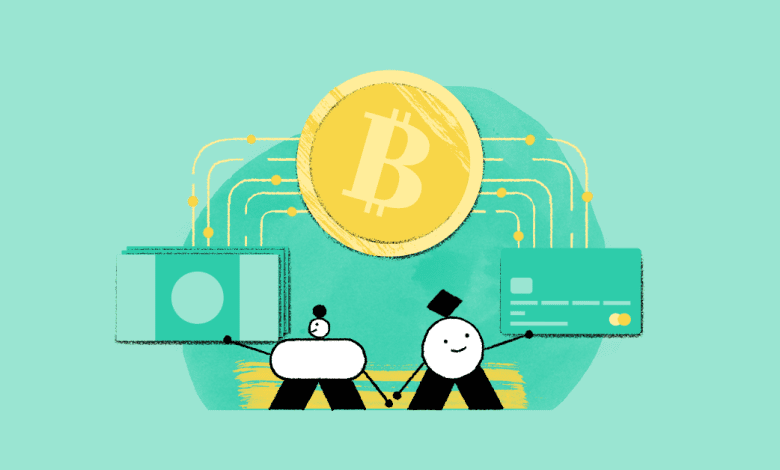SMART CONTRACTS: THE COMPLETE GUIDE

Today, almost all systems operate on a centralized model. That is, there is a certain central system through which all transactions in the financial market pass. And the parties making this or that transaction are forced to trust it. But in fact, they have no objective reasons for trust. But someone’s business can be completely dependent on. The work of a centralized system and third parties who participate in the transaction. Added to the trust issues are significant financial costs and risks of human error. Agree, not very attractive prospects for someone who is going to make a major financial deal.
So why can’t business partners deal directly with each other? Why do they need a third extra? That’s right – no need.
You already know about the blockchain – a decentralized system that functions thanks to computers connected to one network. Blockchain technology eliminates the need to resort to the services of intermediaries for transactions. Which makes it more secure and reliable. Therefore, it was on the basis of a decentralized blockchain registry that “smart contracts” were created.
What are smart contracts, and for what purpose they were invented? and why and where to conclude them – read our article.
THE HISTORY OF SMART CONTRACTS
In 1994, Nick Szabo studied law and cryptography. First theorized that a decentralized ledger could improve the process of making and executing business agreements between business partners.
But at that time, the world did not yet know about such a miracle tool as blockchain. And only in 2008. When blockchain technology was created, there was a real opportunity to bring the idea of “smart contracts” to life.
Smart contracts are special contracts that are encrypted and stored in the system. And the network of computers that manages the blockchain ensures that the terms of these contracts are clear and uninterrupted.
The author of the first cryptocurrency Connect Binance Smart Chain to MetaMask
also contributed to the history of the appearance of smart contracts. When creating bitcoin, Satoshi Nakamoto laid down some of the basic principles of how smart contracts work. But at that time, primarily due to security concerns. He was afraid to take risks and did not reveal the full potential of digital contracts. As a result, they were not implemented on client software and were not developed.
Smart contracts began to gain serious momentum with the advent of Ethereum. Cryptocurrency (Russian: Ethereum), also based on blockchain technology. Vitaly Buterin was not afraid to implement smart contracts in his project. He saw them as a tool that could change the future of all foreign exchange transactions. Thanks to him, smart contracts have become widespread, and we all know about them.
WHAT ARE SMART CONTRACTS?
Decentralized smart contracts are a story about when the third one is really superfluous. When for operations with currency, real estate, shares or other valuables it is not necessary to involve an intermediary. Pay him for services and then wait for the paperwork. In short, you do not need to waste your money and time. You cooperate directly with a transaction partner. And due to the fact that business agreements written in smart contracts are executed automatically. The level of trust in a partner is very high. You cut costs, save time, and trust those you work with – your business becomes more self-reliant and sustainable.
So, a smart contract is a piece of software that stores. A set of rules for negotiating the terms of a contract. Automatically checks the contract and fulfils the conditions specified in it, according to a digital protocol. No wonder they are also called self-executing contracts. They really do themselves.
The task of a smart contract is to bring together the two participants in the transaction. The seller and the buyer, and help them exchange certain assets without the need to involve third parties. As Vitalik Buterin, the creator of the Ethereum cryptocurrency. As explained, a smart contract is based on a program that monitors. The fulfilment of a certain set of conditions laid down in this contract.
Blockchain Network
A triggered event occurs – and the smart contract comes into force, the conditions laid down in it are automatically fulfilled. Just like in traditional systems: payment is confirmed – the goods are shipped. The only difference is that all transactions are based on smart contracts. Are stored in the blockchain network (in the distribution registry). And none of the parties involved in the transaction can change the terms of the agreement. If someone tries to change or modify a smart contract. ENS names This is immediately visible to the other parties to the transaction, and they can immediately prevent fraud.
Depending on the ability of the conditions to trigger the specified actions, there are also conditional and unconditional smart contracts.
The first type is strictly determined by the data contained in the blockchain. That is, a conditional smart contract receives all information exclusively from the blockchain network in which it operates. Examples are fair lotteries or multi-sig transactions.
Smart Contract
The second type, is an unconditional smart contract. Can request information that cannot be found on the blockchain and require data from outside to execute. It can be any information that comes to your mind at the moment. Vivid examples of unconditional contracts are sports betting, fortune telling and horoscopes.
However, it is important to note that the execution of unconditional smart contracts requires the presence of a trusted person. He is mysteriously called the “oracle”. The oracle connects the virtual world of the blockchain and the real world. With the help of an oracle, a smart contract receives information from reliable sources of the outside world. It is clear that for these purposes the user attracts a person whose degree of trust is very high. After all, the oracle must be identified with the truth. But sometimes, in order to protect themselves and find out the truth. Users resort to the help of several independent oracles at once.
So, we see that self-executing contracts are really more thoughtful and perfect than traditional ones. Smart contract technology behaves like a single. Intelligent organism, eliminating unnecessary risk costs, and issues of trust in a centralized system.
SMART CONTRACT OBJECTS
Like any business agreement, a smart contract has its main objectives. These include:
Signatories are the parties to the contract who sign the contract. These are representatives of both parties to the transaction. Who, by means of an electronic signature, accepts or refuse the conditions specified in the smart contract.
The subject of the contract is the content of the smart contract. This is everything that is inside the smart contract system. Or to which the program has free access without human assistance.
Conditions – a complete mathematical description of how the clauses of the contract should be executed. In this clear algorithm of actions, logic and consistency must be present.
ADVANTAGES OF SMART CONTRACTS
There are 6 main advantages of smart contracts. The “speaking name” from the very beginning indicates that smart contracts are significantly different from traditional systems. More thoughtful and efficient:
Independence. You don’t need intermediaries to conclude a deal.
Safety. The decentralized technology stores encrypted data in a distributed ledger.
Transparency. Transactions are carried out with full openness, each participant can track at what stage the contract is being executed.
Reliability. The blockchain system contains many copies of all documents.
Saving. You do not need to pay intermediaries, as well as pay costs. since if the terms of the contract are fulfilled. There is an automatic exchange of assets between the parties.
Accuracy. The lack of multiple forms to fill out warns you against the risk of errors due to inattention and other human factors.
In the future, smart contracts will only develop and improve, and along with this, the list of their advantages will grow.
CONS OF SMART CONTRACTS
Users who are accustomed to the classical scheme of making deals and doing business are still wary of digital contracts. It is in human nature that everything new at first causes distrust.
However, smart contracts have several objective disadvantages:
Lack of legal status. The financial instrument in smart contracts is a cryptocurrency, which, as you know, does not yet have official status. Added to this are the difficulties in maintaining an international smart contract, since it is not clear which country’s legislation to use when drawing it up.
Possibility of errors. When drawing up a smart contract, you need to prescribe all the conditions and options for the development of the transaction. and the more complex the transaction, the more difficult it is to accurately create a smart contract. Therefore, they are not yet easy to use in situations with many conditions.
User ignorance. Most users do not have a clear understanding of the work of smart contracts. Because of this there are many questions, doubts and concerns.
Despite these shortcomings, which will be eliminated over time. Smart contracts expand the sphere of influence and presence in our lives. After all, more and more things will connect to the Internet and move. The real world is familiar to us in the virtual one.






